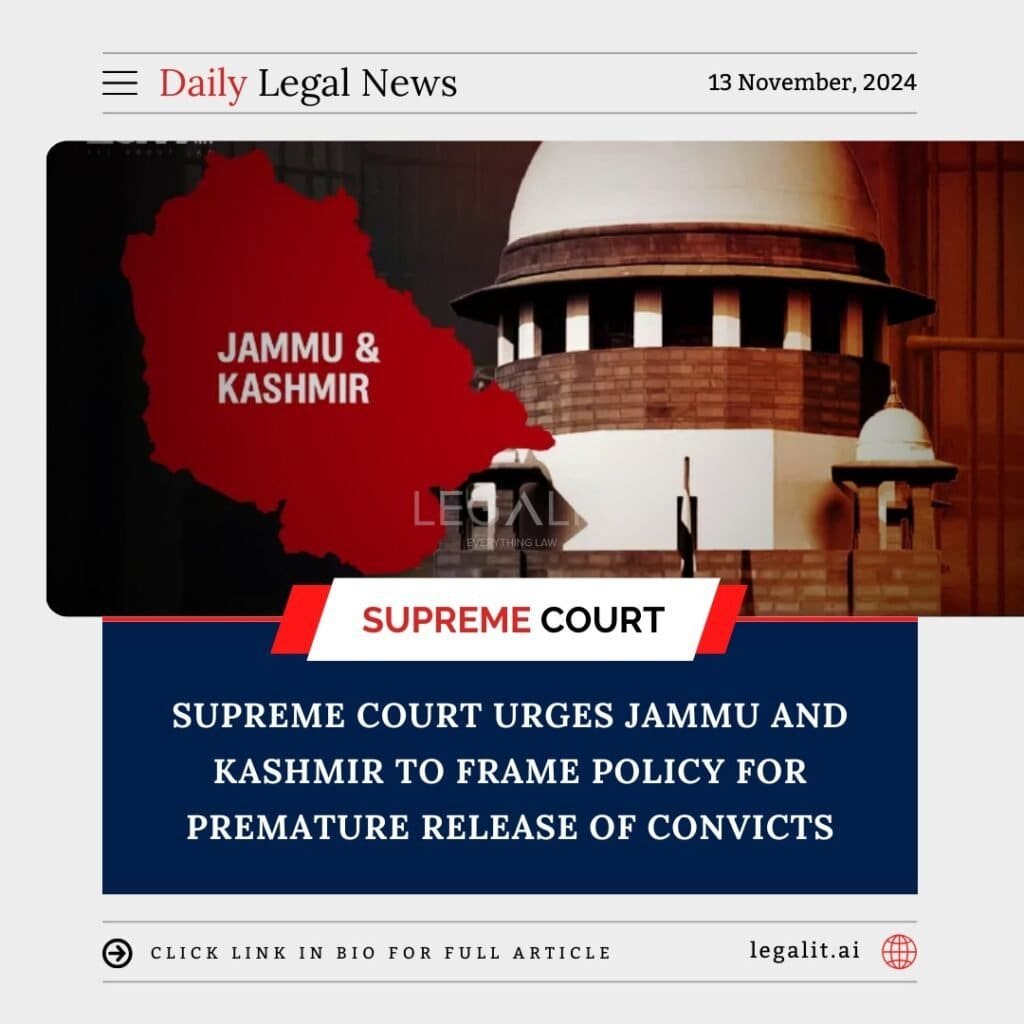
The Supreme Court of India has urged the Jammu and Kashmir government to formulate a comprehensive policy for the premature release of convicts, emphasizing the need for clear guidelines and criteria to govern such decisions. The court’s directive follows concerns regarding inconsistent application of premature release provisions in the region and the need for a structured framework to ensure fairness and transparency in such cases.
Background:
The issue of premature release of convicts has been a subject of legal and administrative debate in various parts of India. In Jammu and Kashmir, the matter gained prominence after petitions were filed questioning the lack of uniformity in the application of the law for early release. The court noted that while there are provisions for the premature release of prisoners, particularly those who have demonstrated good conduct, there is no clear policy in place to guide such decisions in the state.
Court’s Rationale:
The Supreme Court highlighted that the premature release of convicts is a significant matter that affects both public safety and the rights of the individual. The Court emphasized that such decisions should be made based on well-defined criteria and should be consistent with the principles of justice and rehabilitation. It urged Jammu and Kashmir to create a policy that takes into account factors such as the nature of the crime, the conduct of the prisoner during incarceration, and the societal impact of releasing the convict prematurely.
Existing Measures:
Currently, the Indian Penal Code and the Prisons Act provide guidelines for the premature release of prisoners, including those convicted under various categories. However, the implementation of these provisions often lacks consistency across states and union territories. Some states have formulated specific policies, while others, like Jammu and Kashmir, have not yet codified clear rules regarding the issue. The Supreme Court’s intervention aims to rectify this gap and encourage a more uniform approach across the country.
Conclusion:
The Supreme Court’s direction for Jammu and Kashmir to formulate a policy on premature release is a step towards ensuring transparency, fairness, and consistency in the handling of such cases. The court’s recommendation also highlights the importance of balancing the rights of prisoners with the need to protect public safety, ensuring that decisions are based on clear, uniform standards. The policy framework will likely serve as a model for other regions to consider in improving their own practices concerning premature releases.